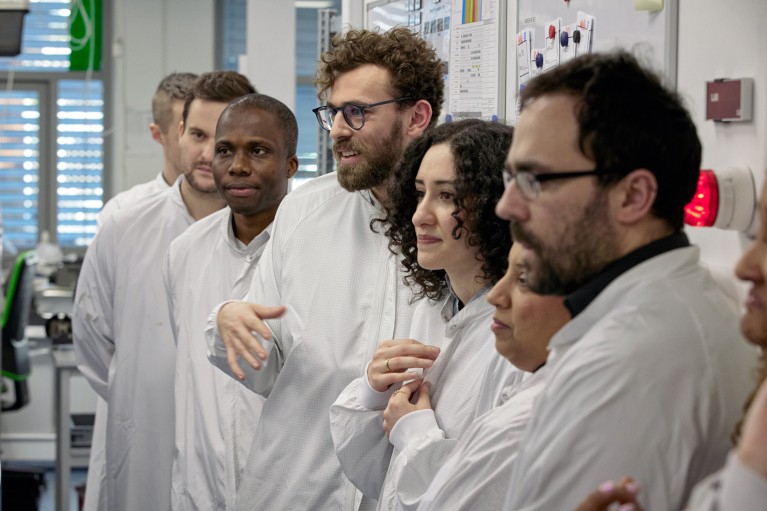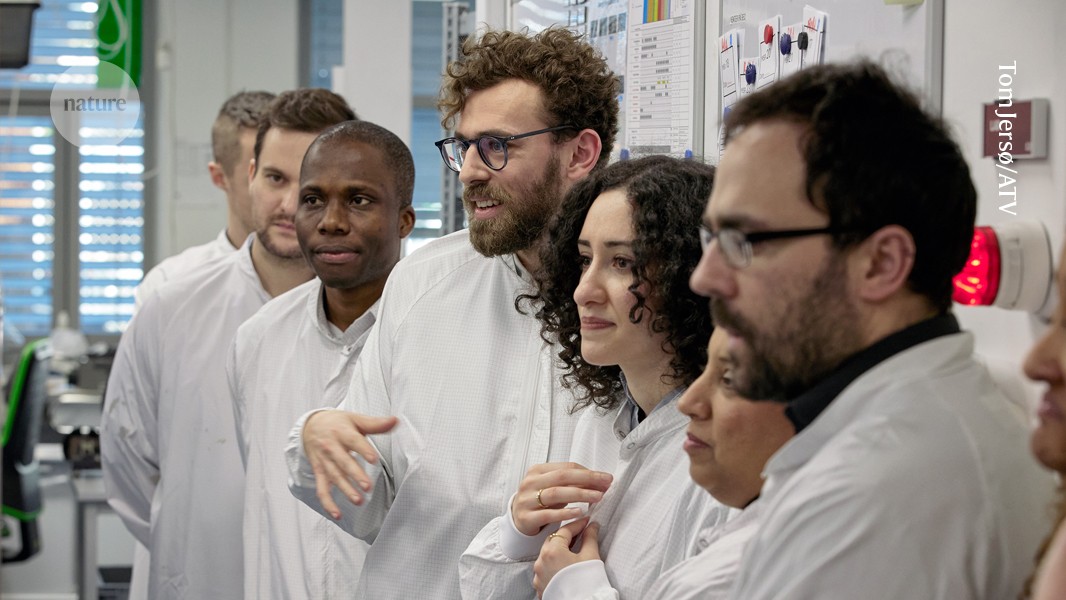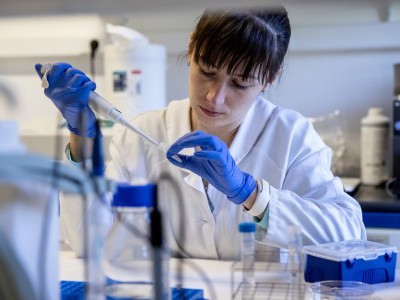
YATSI fellows visiting NKT Photonics in Birkerød, Denmark.Credit: Tom Jersø/Danish Academy of Technical Sciences
As early-career researchers navigate increasingly complex challenges — from climate change to digital transformation — they need to be empowered to take bold steps, form lasting networks and champion science that serves society.
This is where National Young Academies come in. Typically founded by scholars at the beginning of their independent research careers, Young Academies give a voice to and represent the interests of young scientists in academia, helping them to be heard by national governments and wider society. There are now more than 60 Young Academies (and similar networks) worldwide.
But in 2023, a different kind of Young Academy launched in Denmark. YATSI, the Young Academy of Technology, Science and Innovation, aims to give a voice to early-career researchers and professionals in STEM (science, technology, engineering and mathematics), with representatives from both academia and industry, and also to strengthen collaboration between the two sectors.
YATSI’s three founders (Sandra Wingaard Thrane, Janus Juul Eriksen Andreas Hougaard Laustsen-Kiel and Kirsten Marie Ørnsbjerg Jensen) felt there was a need for a Young Academy that focused exclusively on STEM. Thrane co-founded Bactolife, a biotechnology start-up in Copenhagen, in 2017 and is now its chief scientific officer. Eriksen is a chemistry researcher at the Technical University of Denmark (DTU) in Kongens Lyngby. Laustsen-Kiel leads the Center for Antibody Technologies at DTU, and is also the co-founder of eight companies. Jensen is a researcher in nanomaterials at the University of Copenhagen.
Careers advice from scientists in industry
YATSI now has four physical meetings a year and several ad hoc meetings across its three committees. Meetings are hosted by universities and companies, and cover topics that range from career development to STEM education and policy. Fellows are selected on the basis of written applications and in-person interviews. To be eligible, applicants must have completed a PhD (or equivalent) within the past seven years. Membership lasts for five years, and the academy is governed by a five-member council.
We hope to reach a full capacity of around 40 members by 2027 (the number is capped to optimize communication, networking and teamwork, but also to be representative of early-career STEM professionals in Denmark).
Our current fellows come from six universities and nine companies or start-ups across Denmark, and have a variety of STEM backgrounds. Their specialisms encompass physics, chemistry, engineering, food, biology, information technology, cybersecurity and many more fields. There is a balanced and diverse mix of industry and academic profiles, with both Danish people and researchers from other countries who are working in Denmark. For this reason, the lingua franca of YATSI is English. Speaking as a French researcher based in Denmark, joining YATSI is a great opportunity to network with other scientists at a similar career stage. And as a member of YATSI’s Interact committee, I have helped to collate advice around effective industry–academia interactions.
Policy, Inspire, Interact
YATSI has three committees. Its Policy committee aims to ensure that the voices of early-career professionals are heard in conversations around university education, research funding and personal development. The committee also highlights career opportunities in Denmark and Europe.
There is a recognized need for closer collaboration between academic science and industrial commercialization. The Policy committee is gathering support for an academia–industry sabbatical-exchange programme aimed at giving participants a better understanding of the real-world relevance of academic research and helping to ensure that industry practices are informed by state-of-the-art scientific knowledge.
Denmark’s Best Science Meme is one example of how YATSI’s Inspire committee strives to engage the public, to illustrate the breadth and diversity of STEM in Denmark and to disseminate knowledge about STEM research and innovation.



